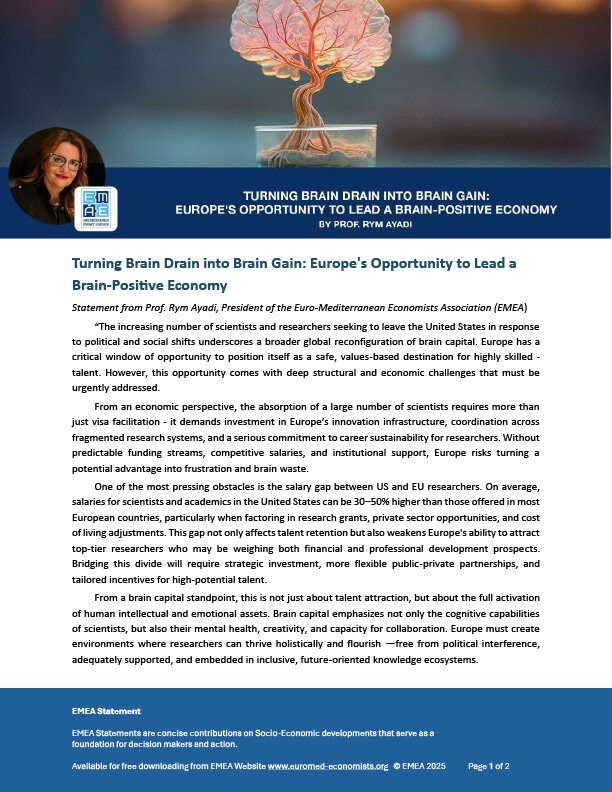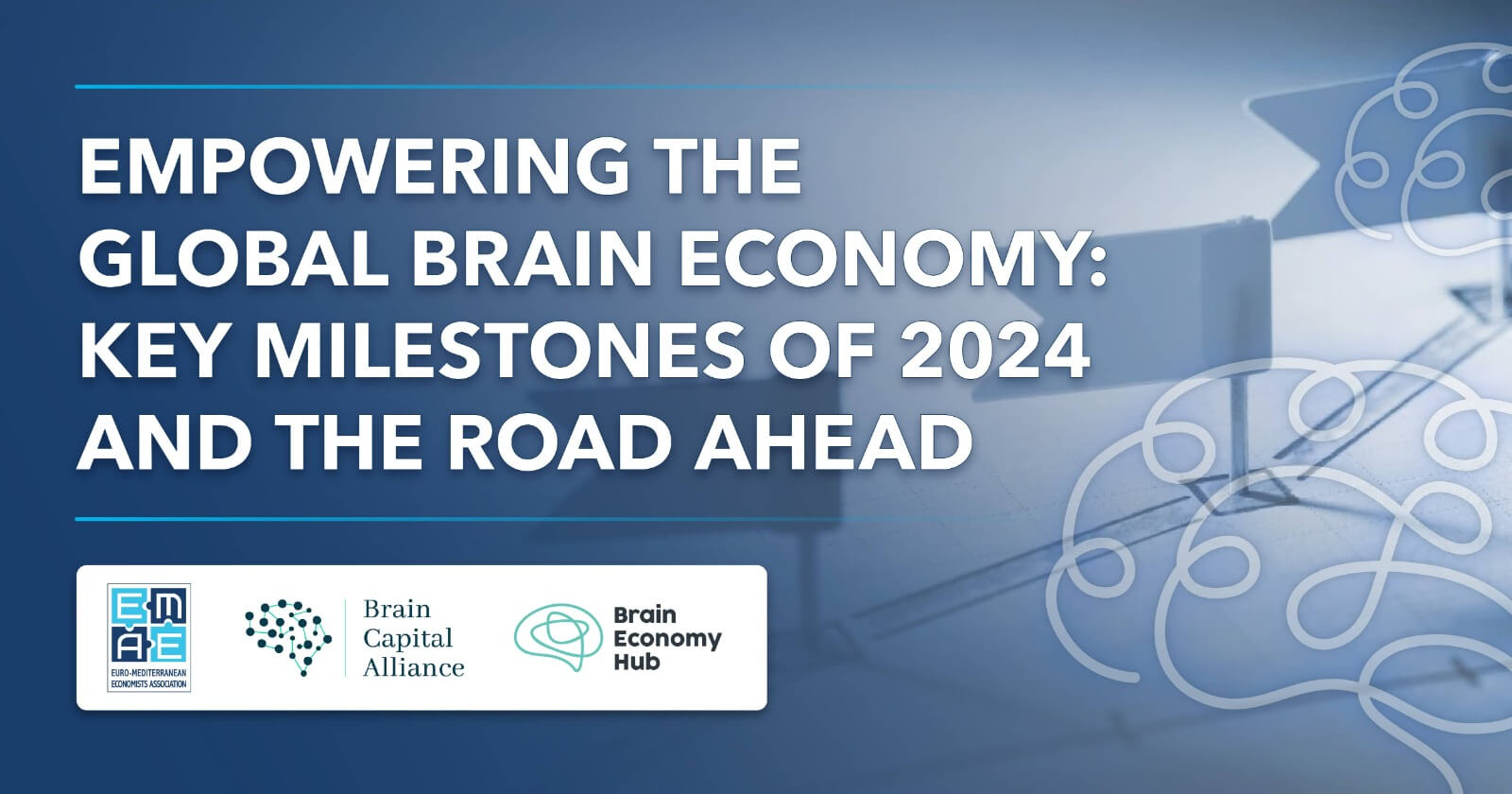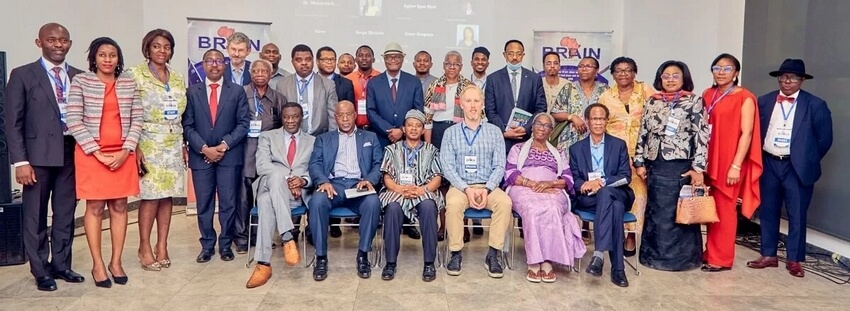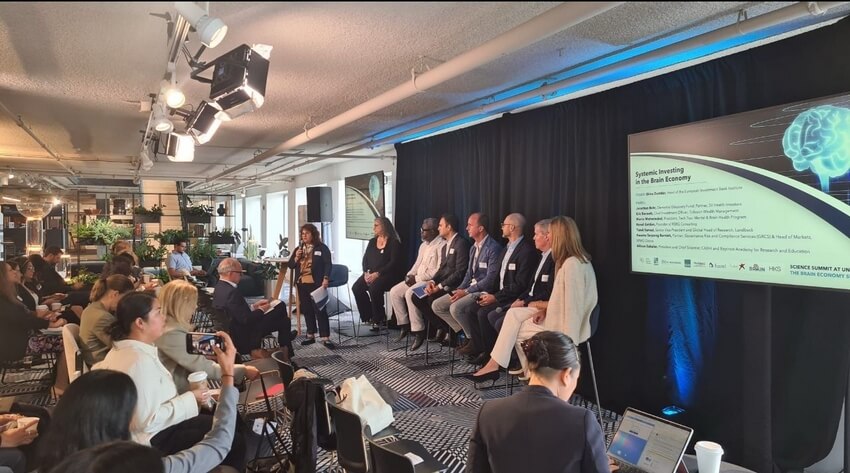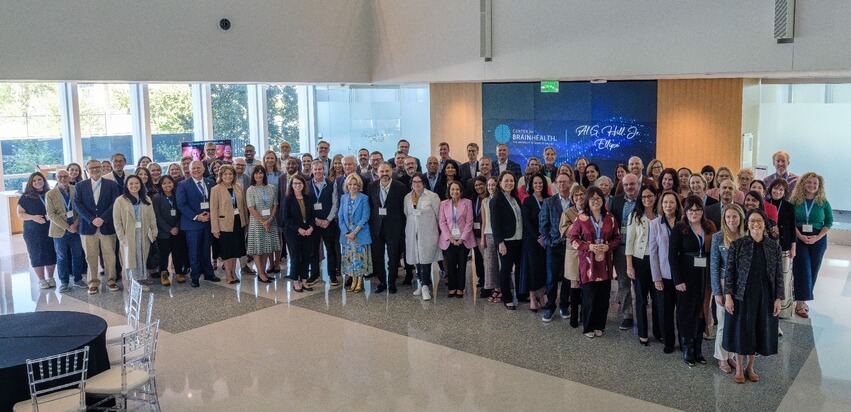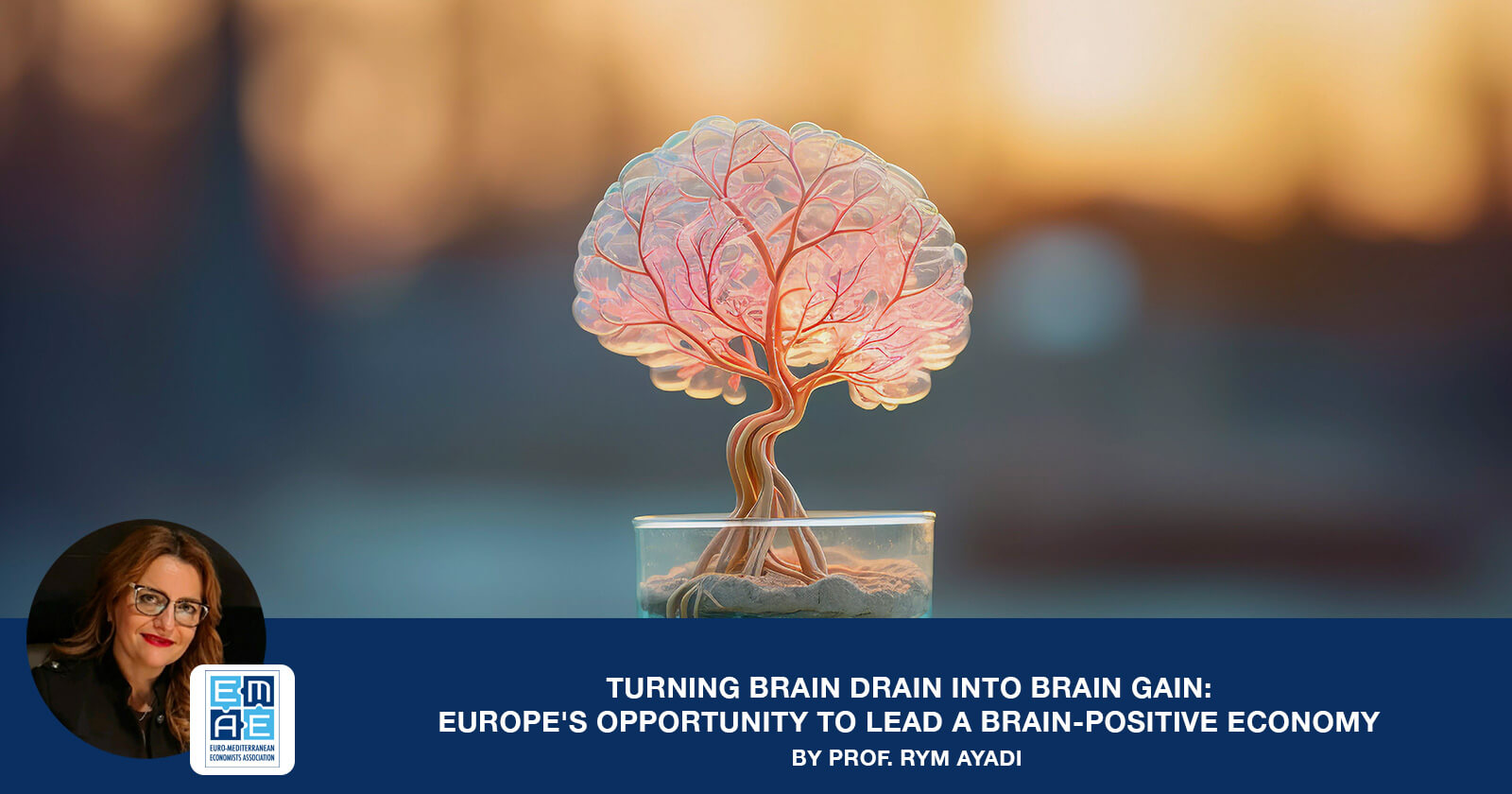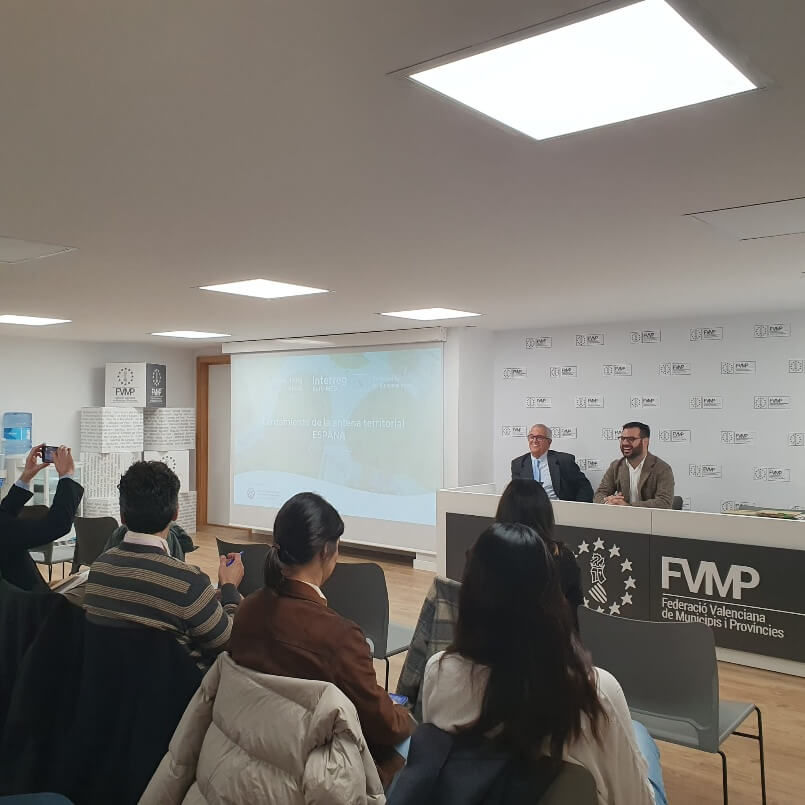Harris A. Eyre MD PhD, Upali Nanda PhD, Jo-An Occhipinti PhD, Josefina Cruzat PhD, Mika Pyykko, Kaisa Hartikainen MD PhD, Jafri Malin Abdullah MD PhD, Pawel Swieboda, Olivera Nasic MD PhD, Zul Merali PhD, Michael Berk MD PhD, Indrit Begue MD PhD, Frederic Destrebecq, Tiago Zibecchi, Rym Ayadi PhD
Abstract:
In the face of escalating global challenges, the Brain Capital Alliance (BCA) and the Brain Economy Hub (BEH) are spearheading an innovative economic transformation towards a brain-positive society. They champion the concept of a “brain economy” — a transformative, systems-level approach that acknowledges brain health, and cognitive and non-cognitive capabilities as critical assets driving human potential and economic resilience.
This goal is ambitious but necessary. The social and business case for a brain-positive society is clear and simple: a people-positive future can only be a brain-positive one
The BCA and BEH are defining the brain economy’s implications and leading the policy and investment response. The goal is to meet the contemporary challenges threatening brain capital, and to empower the economy by boosting societal brain capital.
Here we review highlights from 2024, including significant policy initiatives and milestones, and outline strategic priorities to advance brain capital and economic stability globally. We delineate actionable recommendations for the next phases of brain capital leadership, underscoring our long-term vision for a healthier, more productive global society.
“Our brains are in the red right when we need them in the black.” Eric Mullins, Chair of the Greater Houston Partnership spoke at the Neuro-Policy Program-led “American Brain Economy” event held at Rice University, Houston, Texas, August 27, 2024.
Introduction
According to the Institute for Health Metrics and Evaluation (IHME), mental and neurological disorders cost the global economy $2.2 trillion per year, and this is rising at 5% annually, equating for example, to two-thirds of India’s Gross National Product (GNP), home to over one-third of the world’s population. At a time when cognitive skills such as analytical thinking, creativity, and non-cognitive skills like adaptability are essential for the future workforce, this trend endangers both economic and social sustainability.
The risks to global brain capital are multifaceted, involving interconnected systemic issues that extend beyond healthcare. These challenges share a spectrum of risk factors that include declining diet quality and levels of physical activity at a population level, the pernicious effects of social media, and exposure to persistent organic pollutants amongst many others. Other contemporary social challenges such as declining trust in institutions and an explosion of misleading news sources and deep-fakes, climate change, declining democracy, and increasing authoritarianism compound these issues.
Collectively, these issues highlight the need for a proactive, systems-level approach. Without coordinated efforts to improve brain health, societies risk a profound economic downturn marked by diminished productivity, decreased innovation, and eroded resilience.
Taking care of the brain is an investment in the future with far-reaching, positive consequences throughout the whole society.
In light of the transformative potential of systems change, the BCA and BEH have coined and are leading the “brain economy,” also known as brain-positive economic transformation. Mirroring the collaborative model of the clean energy transition, the BCA and BEH mobilize public, private, and philanthropic actors globally to develop and scale a brain-healthy, or “brain-positive,” economic model. This brain economy seeks to elevate humanity from a state of widespread cognitive risk to one where brain health and capital thrive, safeguarding the economic potential of a highly-skilled, resilient workforce.
Leadership in this transformative effort emphasizes the integration of advanced neuroscience innovations — such as gene editing, brain-computer interfaces, non-invasive neuromodulation technologies, and sophisticated brain mapping. These breakthroughs offer unprecedented opportunities to enhance cognitive health on a systemic level, positioning brain health as a critical driver of workforce efficacy and societal resilience.
To ensure a coordinated and impactful brain economy transformation, we have established a strategic roadmap published via The Brookings Institution, that includes the following actions:
- Develop a shared vision and mission, then explain and communicate.
- Identify and engage key drivers and champions.
- Collaborate widely through alliances with public, private, and philanthropic actors.
- Leverage and scale up existing initiatives and innovations.
- Integrate and localize best practices to a given jurisdiction.
- Monitor and evaluate the progress and outcomes of the transition.
Highlights from 2024:
- Co-leadership of the inaugural United Nations Brain Days at the 79th United Nations General Assembly (UNGA) Science Summit with keynote speeches from New York State Governor Kathy Hochul, Saudi Arabian Princess Her Royal Highness Haya Al Saud (as Vice President of Research for the Hevolution Foundation), and Indian Government Brain Health Task Force Chair, Rajinder K. Dhamija. See Figure 1.
- Successful co-development of the Yaounde Declaration for the Brain Economy, Brain Health, and Brain Capital. In this Declaration, a detailed roadmap is provided for the brain economy transformation. It was endorsed in a recent Diplomatic Meeting of the African High-level Science Summit on Brain Economy, Brain Health, and Brain Capital on 22 August 2024 by Prime Minister, Head of Government, Chief Dr. Joseph DION NGUTE, and Representative of the President of The Republic of Cameroon, His Excellency PAUL BIYA. Cameroon is leading the 79th UNGA. The preprint of this Declaration is available here. See Figure 2.
- Serial dialogues and engagement on the brain economy with governments and their high-level stakeholders. These included the California Mental Health Oversight and Accountability Commission (serial meetings throughout 2024 and their sponsorship of UN Brain Days), the European Union Brain Health Partnership (see here), the Finnish National Brain Health Program(see here), the Indian National Brain Health Task Force (see here), the Swiss Brain Health Plan (see here and here), the Swedish Brain Health Plan (Anna Hemlin, Secretary General of the Swedish Brain Foundation attended UN Brain Days), the Brain Capital UK Summit (see here), the Canadian Science Policy Centre (see here), UNICEF (see here) and the WeMind Cluster Spain (see here). See Figure 3.
- Dialogues with the European Investment Bank Institute on systemic investing to advance the brain economy. The EIB led the development of the Green Bond which has developed a multi-trillion dollar market; the methodology for Green Bonds may be leveraged for a Brain Bond. Interactions with the EIB Institute led to the development of a report on this topic (see here), and the EIB Institute led a panel on this title at the UN Brain Days. See Figure 4.
- Securing a $1 MM gift from Harry Z. Yan and Weiman Gao to launch a Neuro-Policy Program and Senior Fellow position at Rice University’s Baker Institute for Public Policy to be led by Harris Eyre, Executive Director of the BCA and BEH.
-
Updates to the Global Brain Capital Dashboard. These include the abilities to input thresholds into the system, to track data points longitudinally, and to incorporate spatial and granular data (e.g., sentiment analysis, satellite imagery, rasters, infrastructure).
- The launch of the International Neuro Climate Working Group, an international consortium of scientists, clinicians, public policy experts, community workers, and advocates working at the critical intersection of climate change and brain health. Since its launch in April 2024, the network has grown to include 98 members from 30 countries, with a strong representation from lower- and middle-income countries (LMICs). The group’s mission is to enhance understanding of how climate change affects brain health and use this knowledge to make a tangible difference in people’s lives. The group focuses on advancing research, raising awareness, driving actionable strategies, and influencing policy to foster brain-positive environments and enhance public health globally.
- In Appendix 1, we recap the highlights of the major sectoral and cross-sectoral activity.
“How much is your brain worth to you? How much are you prepared to invest in your brain?”
Remarks from Shiva Dustdar, Dean of the European Investment Bank Institute, at the UN Brain Days, September 18, New York City.
Future Directions:
As the brain economy model matures, it will be key in 2025 to formalize the 3 pillars of the BEH. We plan to rapidly advance via four core pillars:
- Ecosystem: convenings, alliances, and dialogues,
- Technical: data and research, education recommendations,
- Public Policy: health system and public policy recommendations,
- Innovation: innovation and investment.
Future plans aligned to these pillars include:
- Development of a global knowledge and action hub for the brain economy aka the Brain Economy Systems Change Lab modeled on the Bezos Earth Fund-funded Systems Change Lab. This will leverage the previously completed Brain Capital Dashboard. The goal is to develop strategies for increasing brain capital across sectors. Example successes to date include the development and launch of the Brain Health Scorecard for corporations and the Building Brains event with leading design, architecture and development companies. This Systems Change Lab will be a main focus in the coming 24 months as we lead this work and bring together diverse academic experts, governments, private companies and philanthropies. These plans were announced at the UN Climate Change Conference, COP 29, in Baku, Azerbaijan.
- Support the advancement of the Texas NeuroResearch Institute legislative activities: At a Neuro-Policy Program / BCA event, State Representative Greg Bonnen (R-Friendswood), Chair of the Texas House Appropriations Committee, publicly emphasized his commitment to examine and consider the design of a >$1 billion state funding bill in the next Texas Legislature (2025) for the establishment of a Texas NeuroResearch Institute (TNI). The Lieutenant Governor, Dan Patrick, outlined his support for a dementia prevention focus. This will allow Texas to globally lead neuroscience innovation and attract more out-of-state investment dollars.
- Launch the Building Brains Coalition between diverse stakeholders to build brain capital within organizations and cities by creating spaces that promote cognitive performance, well-being, and belonging. Initial coalition partners include the Center for Advanced Design Research and Evaluation (CADRE), HKS Inc, the Center for BrainHealth at the University of Texas at Dallas, and the Neuro-Policy Program at Rice University’s Baker Institute for Public Policy. See Figure 5.
Concluding remarks
The journey to get to a brain-positive society is complicated but necessary and the bearer immense benefits. It requires a combination of cultural, systemic and technological changes, starting with a progressive redirection of today’s brain-negative financial flows.
Every transition is filled with uncertainties that can be overcome only by understanding the benefits that the transition will bring. The real engine of every transition is in the confidence and willingness to embrace change. This is where we need to focus on, engage and mobilize for change. Build a narrative that builds confidence and excitement for a brain-positive future and develop a plan that supports the transition leaving no one behind.
We are at the forefront of the brain economy. This update is a testament to our coalition’s success, as we integrate new neuroscience-inspired policy approaches at multiple scales. We would like to thank our many colleagues, collaborators, and supporters from around the world.
Appendix 1: Recap of Major Sectoral and Cross-Sectoral Activity Highlights
Health:
- 4 Ways to Make Our Economy Brain Healthy – Brookings Institution article
- EU Coordination Plan for the Brain Webinar Participation – EMEA President and Advisor participation
- A Brain Capital Grand Strategy Toward Economic Reimagination – Molecular Psychiatry paper
- Building Brain Capital – Neuron article
Aging:
- Investing in Late-Life Brain Capital – Innovations in Aging paper
- Brain Capital: A Transdisciplinary Public Health Framework – American Journal of Geriatric Psychiatry paper
- Exploring Brain Capital for Aging Populations – Article reference
First 1000 Days:
- WHO Event Report on Early Life Brain Health – EMEA Advisors featured in WHO report
Child and Youth:
- Brain Capital and the Young Generation Event – European Brain Council event
- America’s Declining Brain Power – MedCity News article
- Young Adult Brain Capital and Dementia Prevention – Baker Institute research
- Addressing Youth Mental Health for a Resilient Future – MMHPI article
- Climate Change Has Serious Implications for Children’s Brain Health – BMJ Article
Built Environment:
- Shaping Environments for Longevity Cities – Milken Institute report
- How Cities Can Boost Brain Capital – Psychiatric Times article
- Brain-Healthy Cities through Urban Planning – Baker Institute research
- UN Science Summit on Brain Capital Insights – HKS article
- Building for Brain Health – Perkins&Will article
Women:
- Closing the Brain Health Gap for Women – OUP Blog article
- Violence Against Women and Acquired Brain Injuries – Houston Methodist publication
- Highlighting Brain Inequalities for Women – Center for Brain Health article
Economics:
- How Improving Brain Health Benefits the Economy – World Economic Forum article
- Brain Economy Report Launch at the World Economic Forum – EMEA report
- Mental Wealth: Advancing economic, social prosperity and resilience through investments in brain capital – Nature Mental
Health paper
- Brain Economy: An Opportunity for European Economic Growth – European Policy Centre paper
Industrial Innovation:
- 7 Steps to Igniting Brain Capital Industrial Strategy – Baker Institute research
- Enhancing Brain Power and Enriching Economies – Baker Institute article
Finance and Banking:
- Dialogue on Brain Economy with European Investment Bank – EMEA engagement
- Towards a Brain Economy Systemic Funding Initiative – EMEA discussion paper
- Brain Capital as an Emerging Investment Opportunity – CFI article
Environment and Climate:
- Linking Brain Health and Climate Action – PubMed article
- Where Brain Health Meets Climate Action – BMJ Mental Health article
- Brain Health and Climate Public Interventions – GBHI publication
Sustainable Development:
- Brain Capital as a Priority in Sustainable Development – The Lancet article
Education:
- Crisis, Capacity, and Cognition: A Collective Intelligence Event – University of Pennsylvania event
Workforce:
- Collaborative Business Initiative for Brain Health – Business Collaborative for Brain Health
Responsible Innovation:
- Introducing NeuroShield to Protect Citizens from AI Risks – PubMed article
- A Policy Approach for AI and Brain Safety – Baker Institute research
- Harnessing the Simultaneous Booms of AI and Neurotechnology – EMANES Pre-Conference Webinar
National Security:
- NeuroWeapons and NeuroShields for Brain Capital Security – Baker Institute article
Democracy:
- Brain Capital as a New Vector for Strengthening Democracy – Brookings Institution article
Food and Nutrition:
- Good Food is Vital for Brain Health – Baker Institute research
- Webinar Report: Changing the Food Industry for Brain Health – EMEA webinar report
UN Brain Days:
- Brain Economy Summit at UNGA79 – EMEA co-organized event
- Brain Economy for One Health Summit at the United Nations – Brain Council event
USA:
- The Brain’s Role in America’s Future – Rice University news
- A Proposal for a White House Brain Capital Council – Brookings Institution article
Canada:
- Brain Science is the Foundation of the Brain Economy Transformation – Canadian Science Policy Centre
- Canada has a secret economic advantage that could lead to greater prosperity – Financial Post
Europe:
- Brain Capital as a National Priority for Finland – Finnish Brain Health Plan paper
- Successful Dialogues on Brain Capital in Finland – EMEA Advisor report
- European Health Forum on Brain Capital – EMEA Advisor speaks at the forum
- Brain economy: novel approach to Europe’s growth – European Policy Centre
Africa:
- The Yaounde Declaration: Brain Capital in Africa – Lancet Neurology paper
- The Future of Dementia in Africa: Advancing Global Partnerships – The Future of Dementia in Africa
South East Asia:
- Seminal paper on the brain economy – Malaysian Journal of Medical Sciences paper
Latin America:
- Brain Capital Meeting at Argentine Congress – Infobae article
About the authors
- Harris A. Eyre MD PhD, Executive Director of the Brain Capital Alliance (BCA) and the Brain Economy Hub (BEH); and the Lead and Senior Fellow for Neuro-Policy at Rice University’s Baker Institute for Public Policy
- Upali Nanda PhD, EVP, Global Sector Director of Innovation at HKS Inc. Professor Practice, University of Michigan
- Jo-An Occhipinti PhD, Co-Director, Mental Wealth Initiative; and Head, Systems Modeling & Simulation, Brain and Mind Centre, University of Sydney
- Josefina Cruzat PhD, Investigator at the Latin American Brain Health Institute (BrainLat) atthe Universidad Adolfo Ibanez.
- Mika Pyykko, Executive Director, Finnish Brain Association
- Kaisa Hartikainen MD PhD, Chief Scientific Advisor, Finnish Brain Association
- Jafri Malin Abdullah MD PhD, Chairman, Brain Behaviour Cluster, Universiti Sains Malaysia
- Pawel Swieboda, Founder of NeuroCentury, Co-Founder of BCA and BEH
- Olivera Nasic MD PhD, Senior Scientific Advisor, Brain and Mind Institute, Aga Khan University
- Zul Merali PhD, Founding Director, Brain and Mind Institute, Aga Khan University
- Michael Berk MD PhD, Director, Institute for Mental and Physical Health and Clinical Translation (IMPACT), Deakin University
- Indrit Begue MD PhD
- Frederic Destrebecq, Executive Director, European Brain Council, Steering Commitee of BEH
- Tiago Zibecchi, Junior Researcher, EMEA
- Rym Ayadi PhD, Founder and President, Euro-Mediterranean Economists Association (EMEA), Co-Founder of BCA and BEH

